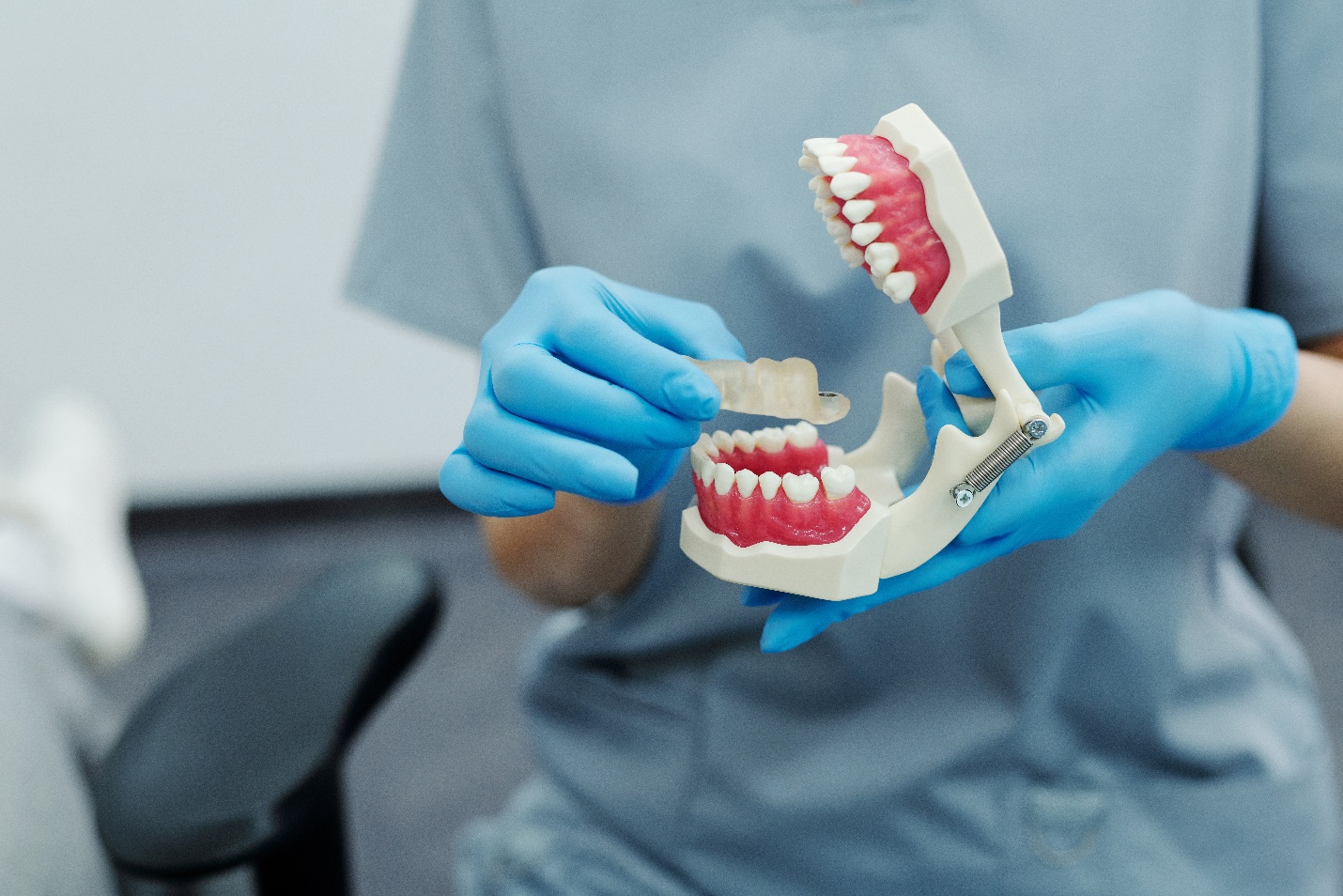
A lot of us have heard of dentures and dental implants but parsing out the differences between them can be a bit complicated. Just how different are they, and why does it matter? As it happens, they are quite distinct from each other, so it’s a good idea to educate ourselves before we go to our orthodontist to discuss potential options.
In this article today, I’ll be focusing largely on the implants. That being said, let me briefly touch upon dentures. They are a set of false teeth that you can remove at your leisure, and they can be the entire mouth or just a section. They require regular maintenance similar to natural teeth.
With that background established, I’ll get into the real topic of today!
What are they?
When it comes to getting a dental implant, perhaps our biggest question is what they are. They are one of the treatment options available for missing teeth or otherwise damaged ones. So, if you are experiencing that, it could be a potential solution.
They are comprised of a few parts. This is the screw, the abutment, and the crown. There are others, but in the interest of keeping this explanation short, I will leave it at that. There are a few benefits that many orthodontists tout, such as a high rate of success over the past ten years (more than ninety percent), decreasing the sensitivity of any surrounding teeth, a lowered risk of developing complications related to endodontics, and better maintenance routine for any bone remaining.
Why People Get Them

There are a lot of motivations someone may have for pursuing a procedure like this. One is tooth decay, of course. You probably know it as a cavity, but when they are left alone, they can develop into a full tooth decaying. If it has to be pulled or is damaged beyond reasonable repair, an implant might be used.
Getting into an accident of some sort and experiencing blunt force trauma that knocks your teeth out or chips them is another potential reason. Especially if the broken material leaves something sharp in your mouth. That can be quite dangerous if left untreated.
Gum disease or gingivitis can also lead to teeth loss, which is often treated with implants. You can see more here, https://www.nuviasmiles.com/blog/dentures-vs-dental-implants, if you want to learn more details about how it can affect your mouth. In a similar vein, a root canal failure could be sufficient cause.
So, as you can see, there are a lot of reasons why people consider getting dental implants. They have become an increasingly prevalent part of oral health care, so if you are experiencing any of the above problems or another one, you may want to get a consultation.

What the Process is like
This is the most intimidating part for a lot of us. It sounds terrifying to have a titanium screw drilled into our jaw. That’s only a natural feeling, and it is quite reasonable to be nervous about it. That being said, most practitioners offer services aimed to lessen that stress and ensure your safety for the entire time.
For one thing, generally they will take a CT scan of your jaw bones. This is to make sure that they are drilling in the correct place and not causing any unnecessary damage during the drilling itself. Once the titanium screw is inserted, it is time for the abutment.
As far as the crown goes, this step varies. Some dentists will provide their patients with a set of temporary crowns or caps (usually made of resin) as their real ones are manufactured and as their mouth heals. It could take up to several months depending on how the operation goes and how many implants you had installed.
Generally speaking, though, most of the healing processes do not experience serious complications. That is the case for those who take care of the implants properly, though. Otherwise, things can certainly go wrong. Unfortunately, sometimes that does happen, and the orthodontist has to take the appropriate action.
How Can we Maintain them?
Dentures require a significant amount of care. You see, every evening when they are removed, they need to be soaked in water and sanitized. Any debris left over, such as food, must be cleansed as well. Otherwise, their longevity can be threatened. As they say, it is better to be safe than sorry.
Now, implants operate in a somewhat similar manner. Your routine before getting them should remain largely intact. The most important aspect is probably flossing. That should be done daily to remove any food buildup that could be growing. Having dirty implants can be quite distracting and embarrassing.
That being said, you should also make it a priority to brush your teeth at a minimum of two times a day. Once after every meal is another good rule to live by when it comes to oral hygiene. Not only does this protect your implants, but it can help to ensure you do not lose any more teeth!
Some can be removed, but not all of them. So, keep that in mind as you set about cleaning and sanitizing them. You may have to do it purely with a toothbrush and floss, which there is nothing wrong with of course. It is just a good idea to remember, in case of something happening.
So, there are the distinctions between a set of dental implants and dentures. As you can see, they each have their own pros and cons. You might be wondering if the expense behind implants makes them worth it, still.
While it is not exactly and affordable option for replacing our teeth all the time, it is a nice way to retain the appearance of natural teeth and not have to worry about taking care of our dentures. Rather, most of the time it will feel like you have your natural teeth! Do be sure to talk to your orthodontist if you are curious!









